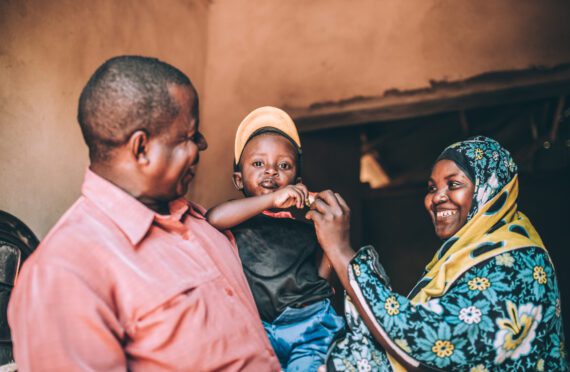At the end of 2021, according to the United Nations High Commissioner for Refugees (UNHCR), 89.3 million people had been forced to flee their homes and seek safety in other countries. Six months later, the number of refugees had increased by 13.6 million people to an estimated 103 million, according to UNHCR’s Midyear Trends 2022.
UNHCR’s mandate is to provide aid and protection to people seeking refuge, including those who have been forcibly displaced, and to people who are stateless. People become refugees for a variety of reasons, such as climate catastrophes, conflict, and human rights violations. UNHCR is often responsible for establishing refugee camps where people live for months or years. Humanitarian organizations such as the World Food Programme (WFP) and local nongovernmental organizations have limited resources to provide much-needed food assistance for millions of people.
Bread for the World members work steadfastly to persuade our elected representatives in Congress to allocate funding that saves lives and eases suffering. This includes emergency humanitarian assistance for refugees, displaced people, and other survivors of natural disasters or conflict.
This year, Bread’s advocacy focuses on the U.S. farm bill, including the Food for Peace provisions to provide refugee assistance that is distributed through WFP and other food security organizations. The farm bill is reauthorized every five years, and Congress is currently debating provisions of the 2023 renewal.
Refugees and displaced people confront innumerable risks to their physical and psychological health. These may stem from the sometimes traumatic circumstances under which people flee their homes, often with only the belongings they can carry; from the hardships of traveling long distances, often on foot with little food or water; from anxiety about an unknown future where they may have little or no agency; from exhaustion; from grief from losing loved ones to violence, accidents, or sickness; or from many other factors. UNHCR points out that women bear particularly heavy burdens, with responsibility for feeding and protecting their children, usually without the networks of family and community that used to support them. They may be malnourished and/or pregnant, and many live with the ever-present fear of sexual assault.
Yet every day of living is a testament to the resilience of refugees across the globe. We may not know their names, but many have dreams and aspirations not just to survive, but to flourish. An example is the story of a Sudanese woman who had just graduated with a degree in education and psychology when she was forced to flee her country.
In reports of interviews conducted by UNHCR for its Midyear Trends 2022, we learn that she now teaches children in refugee camps in eastern Chad. “I thank God that I was able to graduate despite all the hardships I went through. But I wish I had the chance to continue with my masters and doctorate,” she said.
World Refugee Day, observed every year on June 20, was established to lift up refugees around the globe, celebrating the mental and physical strength and courage of people who have been forced to flee their homes. We are invited to put ourselves in their place, to empathize with those who have been torn from their communities, their homes, and often their loved ones. World Refugee Day challenges us to find light and hope in their resilience, and to find motivation to work for change in their resolve to rebuild their lives.
Bread members can do our part by making the case and mobilizing the necessary political will to convince decision-makers to support refugees’ rights and allocate resources to meet their needs. Supporting these aims within Food for Peace in the farm bill is an important way to celebrate World Refugee Day.
Abiola Afolayan is co-director, Policy and Research Institute, with Bread for the World.



